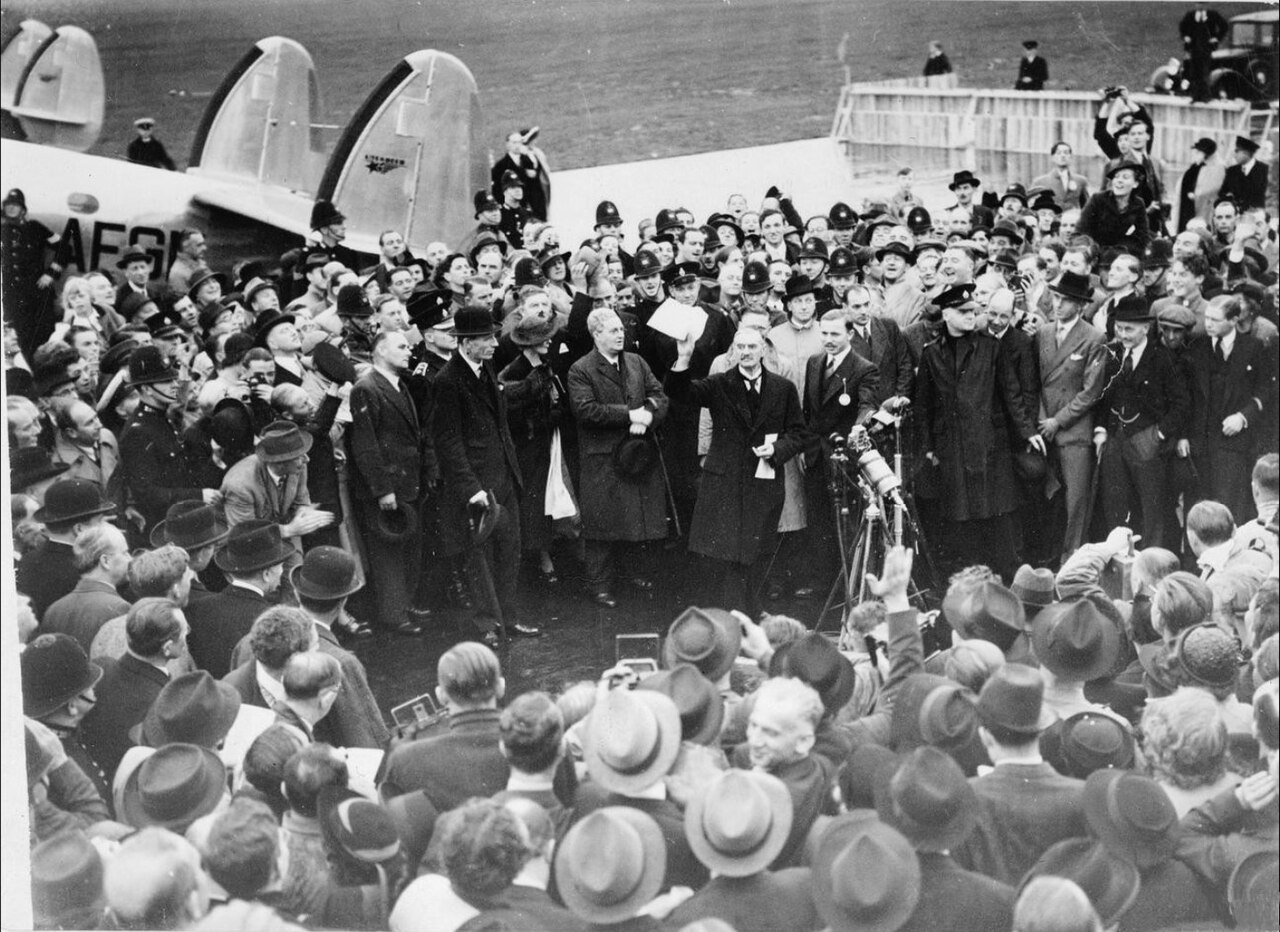Scarcely a week passes without some media pundit or attention-seeking historian warning that a Great War is nigh. As always, there are enough signs and portents around to make that sort of prediction plausible, but it’s rarely correct. In fact, it hasn’t been correct now for 79 years.
We’re talking about a really big war involving all or at least most of the great powers, like World War One and World War Two: Ukraine times a hundred; Gaza times a thousand. And these days, such a war would surely be nuclear.
To argue that a ‘Great War’ is coming’, the doom-mongers have to pretend that such a war will be necessary to stop the Russians. That’s why they always bring up ‘Munich’.
The ‘Munich’ syndrome has been used to justify a great deal of subsequent folly from Vietnam to Iraq. It’s a fantasy version of the origins of the Second World War in which it only got so big because Britain and France didn’t realise Hitler had to be stopped by force.
Instead the cowards tried to ‘appease’ Hitler at the Munich summit in 1938 by giving him Czechoslovakia, and after that it was too late to stop him. So the West has to vanquish the Russians now in Ukraine, or else Putin will also try to conquer the world.
Where to begin with this nonsense? Maybe start with 1932, when the British government, then still the greatest imperial power, abandoned the Ten-Year Rule.
Adopted after the great Allied victory over Germany in 1918, it said that no “great war” is expected in the next ten years, and therefore little money need be spent on armaments. But they weren’t asleep at the wheel: the Rule was dropped in 1932, one year after Japan invaded Manchuria and four months before Hitler came to power in Germany.
In real life, Britain had decided by 1933 that Germany was the major threat and doubled its spending on the Royal Air Force. The first Hurricane fighters entered service in RAF squadrons just as the much maligned ‘appeaser’ Neville Chamberlain became prime minister in 1937.
Chamberlain doubled British defence spending in 1938 and doubled it again in 1939. He and French prime minister Edouard Daladier sold the Czechs out to Hitler at Munich in 1938 partly because they hoped it was Hitler’s “last territorial demand in Europe”, but mostly because they needed more time to rearm.
The first Spitfires entered squadron service in August 1938, the war came in September 1939, and the Germans lost the Battle of Britain in 1940. The United Kingdom managed to hang on alone against Germany until the Soviet Union and the United States were dragged into the war in mid- and late 1941.
That’s how the Second World War really got underway, and it doesn’t bear the slightest resemblance to what is happening today. ‘Munich’ is irrelevant. In fact, all that history is irrelevant.
The advent of nuclear weapons really has changed the way things work. There has been only one time since 1945 when we even came close to a full-scale war between the great powers: the Cuban crisis of 1962.
That was truly dangerous because successful nuclear first strikes were still theoretically possible and the principles of nuclear deterrence were not yet fully understood and accepted. Nevertheless, the two sides managed to think their way through the confrontation and avoided Armageddon.
By now everybody knows the steps of the dance and the nuclear doctrines take explicit account of human psychology. In fact, even non-nuclear confrontations are generally managed in ways that minimise the risk of escalation. For example, look at how last April’s confrontation between Israel and Iran was handled.
The Iranians felt they had to strike back when Israel killed three of their top generals in a missile attack on their embassy in Damascus, but they gave the US enough details about the timing and targets of their big retaliatory strike against Israel that their missiles and drones were almost all shot down. ‘Honour’ was satisfied, and very few people were hurt.
Or consider the war in Ukraine, now more than two years old. There has been some escalation, but very slow and very cautious. Moscow occasionally makes vague threats about nuclear weapons, but nobody panics; Nato countries don’t mention them at all. Blunders are always possible, but the war still seems well contained.
That’s how we got through the past 79 years, one crisis at a time. Aggression needs to be discouraged and if possible contained, but nobody is trying to conquer the world, so don’t ever risk the whole world by using nukes. And keep working on building the international rule of law, no matter how frustrating and futile that often seems.
Gwynne Dyer’s new book is Intervention Earth: Life-Saving Ideas from the World’s Climate Engineers







Click here to change your cookie preferences